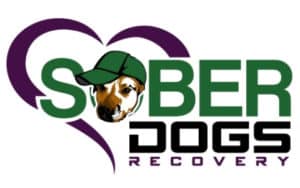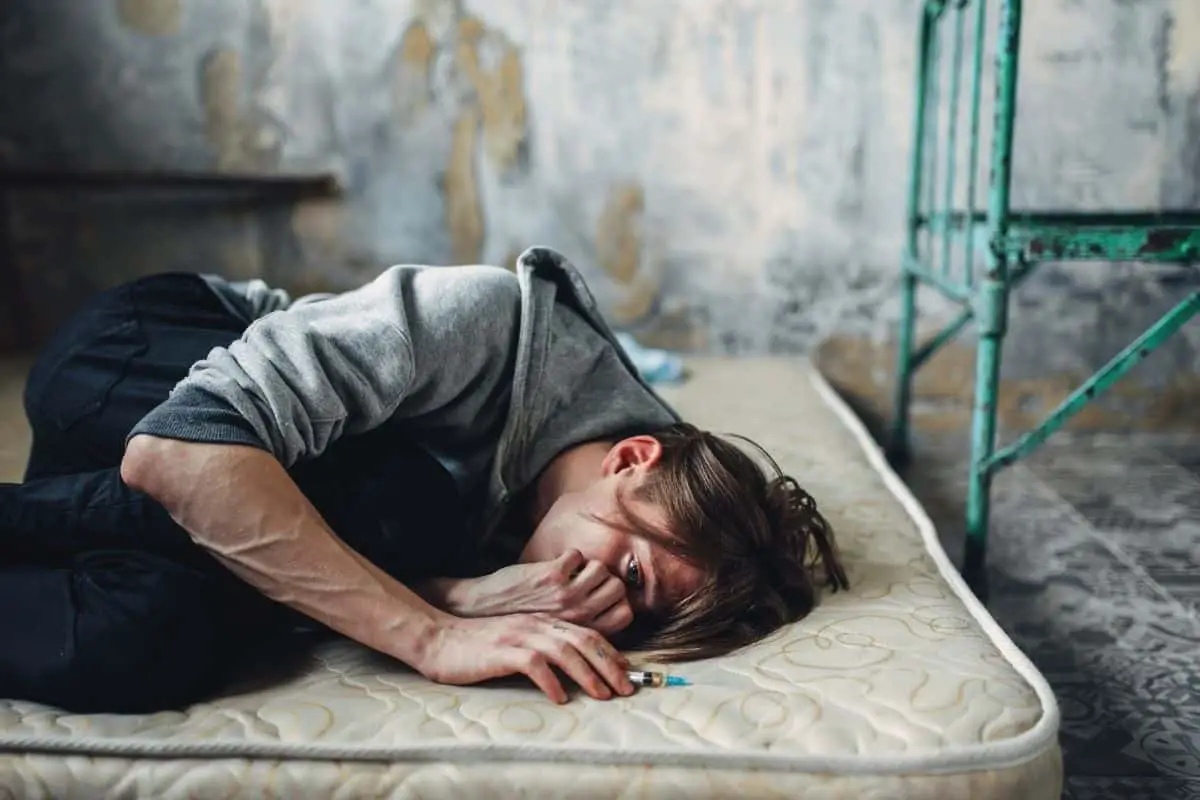Trying to understand addiction is like trying to understand brain surgery combined with psychology. It’s almost impossible to truly grasp what’s happening in someones else’s mind. In some ways, addiction is unique to each person, but at the same time, every case has similarities. Unless someone is in recovery, almost every person I talk to has a difficult time comprehending addiction. They can’t understand why addicts could possibly keep using drugs knowing the destruction we are causing to our lives.
Why Can’t Addicts Just Stop Using Drugs?
When a person is in the grips of addiction their brain and body are literally pushing them towards the drug or activity they are addicted to. This effect is both conscious and unconscious. Many people who suffer from addiction have been using this chemical for so long it becomes part of their brain chemistry. They need it to function normally. Without the drugs, their body will start to go into withdrawal. The addict has used drugs as a coping mechanism for so long it becomes part of their daily routine.
Addicts won’t just stop using drugs because they can’t function without the drugs. The drugs have become like oxygen to the addict, it’s something they need every day to live, or at least that’s what their body and brain are telling them. They don’t know any other way to survive except keep using drugs.
Addiction can be defined as the inability to abstain from a substance, activity, or thing. Repeated use causes altered brain chemistry and the phenomenon of craving. Addiction is considered a brain disease because it alters a person’s brain chemistry. The brain of an addict re-wires itself to seek this behavior even though negative consequences are associated with it. Even if everyone else can see the cycle of destruction the addict’s brain is still telling them they need more drugs. Addiction like other diseases has relapse and remission periods.
Hard To Comprehend Addiction
We hear and see stories all the time of a parent going to get drugs with their kids in the car or driving drunk with kids. Any person in their right state of mind would think that’s crazy and dangerous. The addict is thinking “I need to get high or I can’t function today”. This is hard for non-addicts to comprehend. I’m not trying to make excuses for that person. I’m simply stating that their brain is in survival mode and the drug is their food and water.
A friend of mine was told by the drug court judge that if he shows up high, he’s going to jail for a year. All this guy had to do was not use drugs for 24 hours. He showed up high. My point is non-addicts have a hard time grasping why addicts can’t just stop, it doesn’t make sense to them. The addict’s brain is re-wired to seek that drug at all costs.
It is not as simple as “Don’t touch the stove it’s hot” It’s more like us addicts are a mosquito and the bug zapper is the drugs. Our brains and body are wired to go into the light.
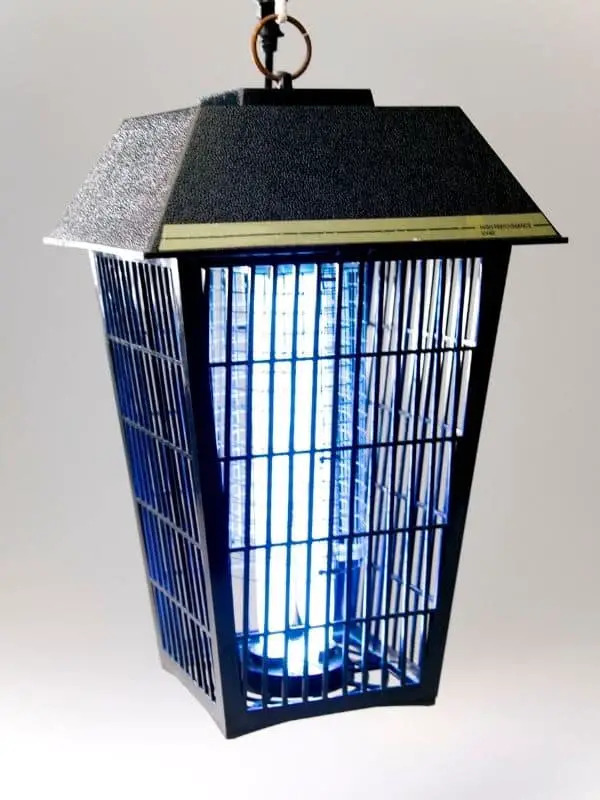
Addiction Changes The Brain
Drugs alter our brain, which is what makes us feel different from our normal state of mind. When we use drugs for a long period of time it starts to change our brain chemistry and perception of life. For many of us addicts we may wake up and say “OK I’m not using today no matter what!” and we mean it. Throughout that day our brain starts to scream at us “Hey give me some of that chemical you give me every day, I can’t function without it.” Our brains just as much as our bodies start to rely on this substance and when we don’t have it our brain will let us know.
Most addicts will have a 5 pronged attack when it comes to drugs and cravings. The 5 attacks are:
- Cravings
- Lack of Function/ Being Fuzzy
- Associations
- Depression/Anxiety
- Physical Symptoms
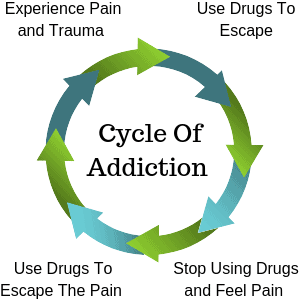
Drug and Alcohol Cravings
Every addict knows what cravings feel like. It is a debilitating feeling. When a craving hits me I get overwhelmed with thoughts of using drugs. Many addicts I’ve talked to have the same experience as me when it comes to the strength of their cravings. When I get a bad drug craving it can literally stop me dead in my tracks for 10-15 minutes. The good thing about cravings is the longer you stay sober and work on your recovery the easier it becomes to deal with cravings. Many addicts in early sobriety don’t know how to deal with this unrelenting craving so they go get high. For tips on how to deal with drug cravings check out this article: 21 Effective Ways To Deal With A Drug Craving.
Lack Of Function/ Being Fuzzy
The second attack is a lack of function or what I call the fuzzy head. Our brains have become reliant on the drug for normal function, without it we feel fuzzy and out of focus. For me, it’s similar to a hangover combined with a horrible case of ADD (attention deficit disorder). I don’t feel good and I’m jumping from thought to thought without finishing any tasks I start. This fuzzy head for me and many people start about 6-8 hours after our last high. When addicts start to get this feeling there is only one short-term fix they know for sure will get rid of it, getting high.
Past Drug Associations
The third way my brain says “give me my fix” is associations. On a normal day, I may walk down the street and see nothing special. If an addict uses it every day then tries to stop, random and normal things will remind them of drugs and drug use. This is similar to a craving but it’s like the trigger that sets off a craving. A house I see every day will remind me of one of my dealer’s houses even though they look nothing alike. The smell of coffee which I smell every morning and is normally no big deal will all of a sudden bring up thoughts of that time I got high and went into Dunkin Donuts a year prior.
Just like people can remember sights, smells, or sounds from the day they met their true love or other big events, addicts’ brains create an association of using drugs with people, places, and things. The problem is like most addicts I used drugs in thousands of parking lots, different cars, houses, everywhere. Literally, I can make a connection to almost any place with someplace from my past that I got high at or near.
When every person and place you see reminds you of using drugs this can be overwhelming. I would feel like I was going insane. To stop these maddening associations I needed to get high. I truly felt like I would have to live the rest of my life this way unless I kept getting high.
Depression/Anxiety
The brain’s mesolimbic dopamine system, its reward pathway, is stimulated by all types of reinforcing stimuli, such as food, sex, and many drugs of abuse, including cocaine, and heroin. When we abuse drugs like heroin or cocaine it sends a flood of these feel-good chemicals (dopamine, etc.) into our brains. This not only creates the Euorphic “high” but also sends a message to our brain to keep doing this behavior because it feels good. (Source)
Repeated abuse of drugs hijacks this reward system in our brains. Our brain stops making natural dopamine because the drugs are creating so much false, artificial dopamine. When the drugs leave a person’s system, the person doesn’t return to a normal state of mind. They go to an extremely low point. The brain isn’t making healthy amounts of dopamine and the person isn’t getting it from drugs so this creates massive depression. Even if an addict wakes up the day after using drugs and has every intention of staying clean that day, depression will kick in and cripple them. When this depression sets in, an addict will seek out the one thing that can get rid of that depression for a few hours…more drugs.
What makes this so hard is the longer you don’t use drugs during this period the depression can get worse and you feel like there is no possible relief. The person knows the only thing that will instantly stop this depression is to get high. The problem is getting high will only relieve this depression and anxiety temporarily. After you come down from the high the depression will typically be worse. This awful cycle is why many addicts can’t stop using drugs.
Physical Symptoms
I used to wake up and say “NO DRUGS TODAY” and again I would mean it. Every hour that went by, withdrawal symptoms would kick in, and steadily get worse. Sweating, shakes, diarrhea, nausea, vomiting just to name a few. I knew that one little hit of dope would take all this pain away. No matter how bad I wanted not to use drugs, the thought of going through that pain for days or weeks was unbearable.
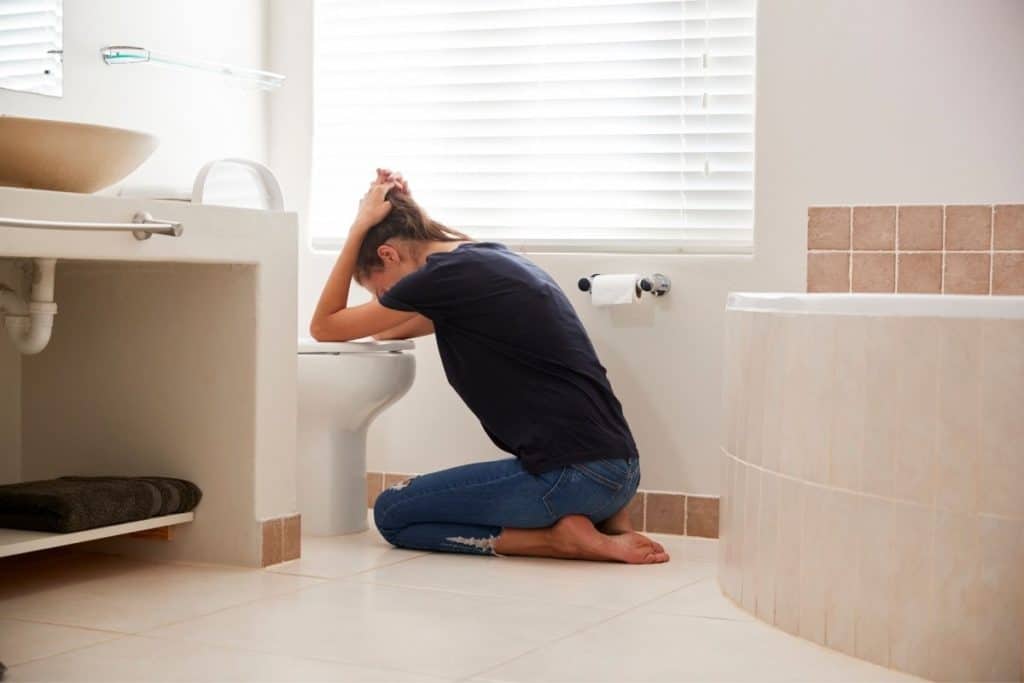
I’ve often heard people refer to heroin/opioid withdrawal is like having the flu. I agree it’s similar, but there are 2 main differences. The first difference is the magnitude of the symptoms. The symptoms may be similar: diarrhea, sweating, and vomiting but in withdrawal, they substantially worse and more frequent. During the flu, I can still watch TV, or go make something to eat hoping it stays down. In withdrawal, every single task feels like it’s life-threatening. Something as simple as taking a shower or making a cup of tea feels like getting beat with a bag of bricks. Just getting out of bed and making it to the bathroom when I was withdrawing felt like a 10-mile uphill run, unbearable and impossible.
The second difference between the Flu and drug withdrawal is the mental aspect. The flu can definitely ruin a good mood and make us feel lethargic, mildly depressed, and anxious, but nothing like drug withdrawal. Coming off dope cold turkey triggers bouts of depression and anxiety so deep it literally feels like death would be better. After 10-12 hours of withdrawal, I would feel suicidal. These physical symptoms add to the list of why addicts can’t simply stop using drugs.
Imagine if there was a pill you could take when you had the Flu. This pill not only would cure all your Flu symptoms instantly, but also make you feel fantastic and energetic. That is what heroin does for someone in withdrawal. Many addicts will want to be sober but can’t bear these withdrawal symptoms and seek out their fix, and make it all go away…for another 6-8 hours until the cycle of misery starts over.
Detoxing from drugs or alcohol by yourself can be very dangerous. Please work with a doctor or health care professional to get proper treatment when detoxing. To learn more about withdrawal check out this article: Heroin Detox: The First 30 Days.
Finding The Root Cause of Your Addiction

For myself and most if not all addicts, there is some underlying reason we are using drugs in the first place. Some pain, trauma, mental illness, or insecurity is the reason we are seeking to escape reality. Without pinpointing what this is and treating it, we will constantly crave the feeling of escape that drugs temporarily provide. In many cases, even after finding this root cause we still struggle with relapse and have to work on this every day.
Admitting we have a problem and facing this root cause is the first part of recovery. For someone who has never exercised a day in their life going to the gym feels alien. They need to create a new habit and stick to it. This new habit is hard to form and will feel very uncomfortable in the beginning. Addicts need to learn how to deal with their underlying pain or trauma in healthy ways. This requires forming a new habit that feels weird and uncomfortable. Many addicts can’t stop using drugs because they don’t know any other way to deal with their pain.
Humans’ brains are wired to seek the path of least resistance. Throughout all our years of evolution, we have learned to take the easy route whenever we can. This allows us to save energy and unnecessary pain. An addict has been using drugs or alcohol to escape reality because something in their reality is causing them pain or discomfort. Using drugs has become their path of least resistance, their norm, their comfort zone. That may seem weird to non-addicts. How could living this destructive, uncertain way of life be comfortable or normal? You’d be surprised what your body gets used to when you expose it to certain things, over long periods of time. Especially when stopping a certain action will cause extreme pain and discomfort. Many addicts can’t stop using drugs because they don’t know how to break the cycle of pain and misery.
-Kyle Ruggeri-
Related Questions
Now That You Stopped Using Drugs Are You Cured?
No, unfortunately, there is no cure for addiction. Sobriety is something I have to work on every single day of my life. I know people who are 30+ years sober and they still have to work on it every day of their lives. It definitely gets more manageable over time and the cravings get easier to deal with, but it never leaves.
People have got mad at me when I use this analogy but it’s dead accurate. If a diabetic is feeling sick they give themselves insulin because they need it and it makes them feel better. When an addict is feeling sick they give themselves drugs because for the short-term it will get rid of their sickness and make them feel better. Also just like insulin, addicts become reliant on drugs to function normally.
